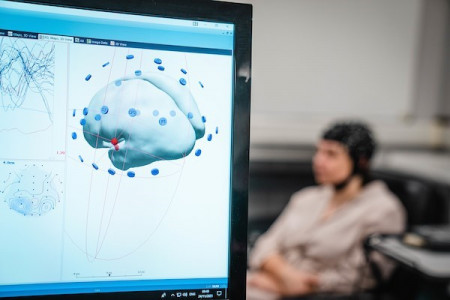
University of Bolton, Deane Road, Bolton. BL3 5AB
Tel:
Email:


“At the University of Bolton, we take great pride in providing a quality, supportive learning environment for our students.”
Professor George E Holmes DL | President & Vice Chancellor
“...tutors are very supportive and you’re not just a student ID number, at this university you are an individual with a name.”
Ellisse Vernon | BSc (Hons) Adult Nursing
Back to menu
Back to menu
Study with an Off-Campus Partner
Back to menu
Back to menu
University of Bolton, why we are the right choice
Location - Bolton, Greater Manchester

27/04/2022
Looking into studying for an applied psychology degree? Perhaps you’re interested in how the mind works. The truth is the human mind is the most complex machine on Earth and it works differently for everyone. Psychology relates to the science of the mind and can be broadly defined as the mindful way to study. Understanding human thought and behaviour plays a major role in advancing social and cultural psychology. However, the main question when studying for an applied psychology degree is how can we physically study something that is so mysterious and complex as the mind?

The Human Brain - How It Works
When thinking about how the mind works, we need to consider the history of psychology and how it’s evolved over time. Traditionally, the origin of psychology relates to human cognition, the technical term for studying how the human brain thinks. Are you interested in computers? Well, think of the brain as a big computer. Processing information that it receives from the senses and the body, before sending messages back to the body. Sound interesting? Better still, the brain does more than a computer as humans think and experience emotions with their brain, causing the root of human intelligence. Ever cried at an upsetting scene on your favourite TV show? This emotion would have been stimulated by your brain.
But how does the brain think?
This involves the nerve cells. Rather cleverly, your nerve cells can detect information about the outside world and transmits that information to other nerve cells. This transmission process of the cells talking to each other is the basis of how the human brain thinks. By studying for an applied psychology degree at the University of Bolton, we can give you access to our Neuroscan software that maps brain activity, giving you a thorough theoretical and practical understanding of the mindful way to study.
Brain Structure – Right or Left?
From a psychologist's perspective, human behaviour is a clue to the workings of the mind. However, have you ever thought much about how the brain is physically structured and how that affects how it works? In essence, the cerebrum of the brain has two hemispheres – the left and right. But what do they do? For the most part, the left hemisphere is responsible for speech and abstract thinking, whereas the right hemisphere is responsible for spatial thinking or imagery. You need to think in reverse psychology when talking about what side of the body each hemisphere controls as the left hemisphere controls the right side of the body, and vice versa.

Psychology Degrees at the University of Bolton
If you are interested in psychology and the mindful way to study, then an applied psychology degree at the University of Bolton could be perfect for you. Our BSc (Hons) Psychology degree is recognised for high student satisfaction and innovation, meaning that you will graduate from our university with a valuable psychology degree. Throughout your studies, we offer you a stimulating and supportive learning environment, with continuous opportunities to progress your professional and personal development. This is why our students love life at Bolton!
We pride ourselves on ensuring that by the time you graduate, you will be a confident and highly employable individual with the skills you need to pursue a long, successful psychology career.
If this sounds exciting, feel free to give our advisory team a call at +44 (0)1204 900 600. Alternatively, you can send us an email at enquiries@bolton.ac.uk. We would love to hear from you! To view our available courses, click here.